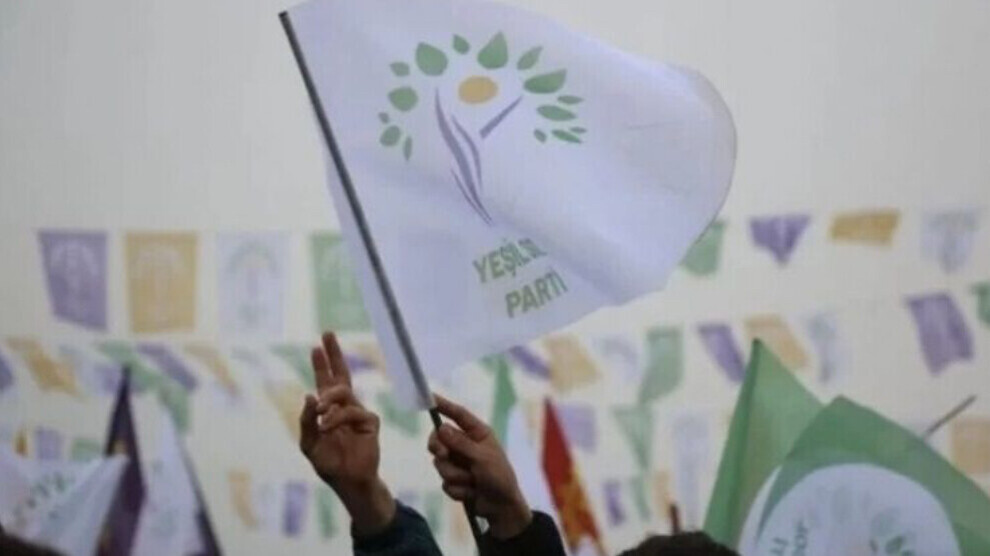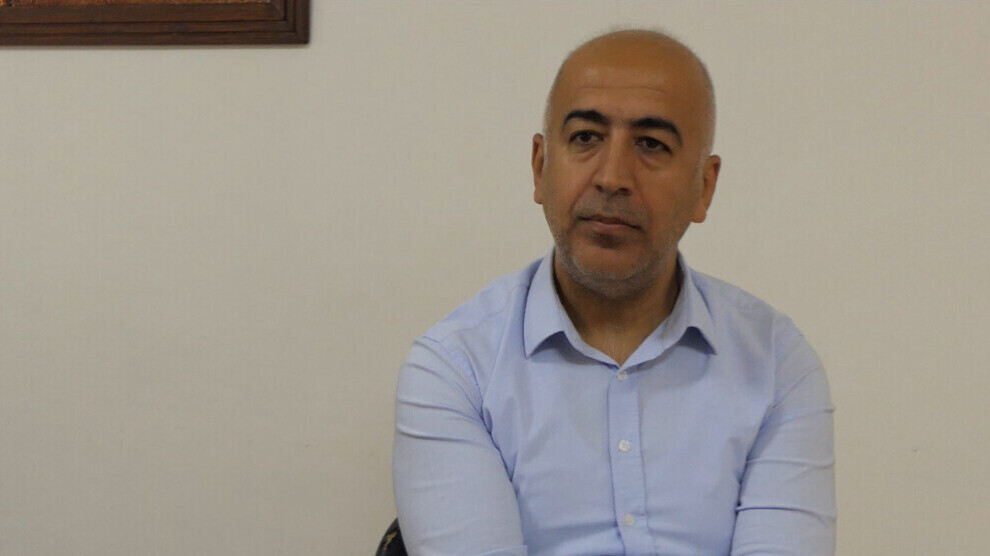Green Left Party executive member: We will develop a roadmap together with the people
After the clear losses of the democratic opposition in the elections in Turkey and Northern Kurdistan, a process of criticism and self-criticism is beginning.
After the clear losses of the democratic opposition in the elections in Turkey and Northern Kurdistan, a process of criticism and self-criticism is beginning.

After the Green Left Party's success in the parliamentary elections in Turkey was clearly below expectations, a phase of criticism and self-criticism began. In the elections on 14 May, the Peoples' Democratic Party (HDP), which is under threat of being banned, contested under the umbrella of the Green Left Party and suffered significant losses. Its percentage share dropped from 11.62 per cent in 2018 to 8.79 per cent currently. This is certainly largely due to the high level of repression and electoral fraud by the regime. Nevertheless, an intense debate is now beginning about the shortcomings and failures of the HDP and the Green Left Party. HDP co-chairs Pervin Buldan and Mithat Sancar have recently announced that they will not run for the board again.
Cahit Kırkazak, an executive member of the Green Left Party, spoke to ANF about the upcoming process.

Kırkazak said that elections alone are not the decisive factor in a democracy. Rather, he said, it is a question of whether democracy can be socialised and whether the will of the people is reflected in the government. "A democratic election requires that all political parties have equal opportunities to use the means of reaching the public and the institutional possibilities. If this is not so, elections are nothing more than a means for the rulers to self-affirm their status quo. We have seen in this process that instead of holding a democratic election, the alliance of AKP and MHP has tried to get society to confirm its dictatorship and authoritarian rule. In theory, such a thing is called a plebiscite. In this process, Erdoğan has not limited himself to using all the instruments and means of the state, but has also deliberately avoided creating a transparent and trustworthy system. For example, ministries that, according to the constitution, should have been neutral before the elections, did not withdraw in any way. All cabinet ministers used the unlimited resources of the state for election campaign purposes. On the state broadcaster TRT and its channels, the government had carte blanche while the opposition was blocked. The election campaign of the Kurds and the Green Left Party was permanently criminalised. We were openly threatened with paramilitary forces and this laid the basis for the attacks on us in some places. During the election campaign, our vehicles were pelted with stones, our candidates were imprisoned. Party members who were carrying out election campaign activities were detained and most of them were imprisoned."
Kırkazak emphasised that the regime mainly played the card of hostility towards the Kurds in the election campaign and added: "The State Alliance conducted an anti-democratic election campaign. To do so, it used its monopoly on state violence and funds. Authoritarian rulers or dictators have two basic arguments: One is the argument of religion and the other is nationalism. The AKP used both together in combination with hate speech."
Kırkazak continued: "If an election is won by fomenting hatred towards a nation, it means that things have become much more difficult for society and the basis of coexistence has been seriously shaken. Undoubtedly, we will not react to this with hostility towards Turks or hostility towards another nation. In the face of this bitter Kurdish hostility, we will always be a place where Kurdish reality, the rights of Armenians, Circassians and Greeks are courageously defended. The whole opposition should be sensitive in this regard and understand how dangerous this method of the government is."
The election results of the Green Left Party must be seen as a failure, said Kırkazak and continued: "The causes, however, are not to be found in the construction of the Labour and Freedom Alliance, but in shortcomings in its practical implementation. When the Labour and Freedom Alliance was established, it was formed as an alliance of struggle. In other words, all the socially excluded of Turkey, i.e. the disadvantaged, formed a unity of struggle for social coexistence, ecological life, coexistence of different identities and for the construction of social life. At present, a monistic, patriarchal, authoritarian state mentality prevails, which is aggressive towards any diversity and free spaces in society. Against this aggression, disadvantaged people must unite in a social coalition of struggle."
According to Kırkazak, "The biggest misfortune of this alliance was that the elections took place immediately after the alliance was formed. Unfortunately, we could not conduct this process in the right way. It would be unfair to attribute the election result to a single alliance. We believe that this alliance should be expanded and strengthened. For 150 years, society has been dominated by racism, fundamentalism and state fixation. As long as the social struggle is not united in this sense, the current monist political forces will always be able to easily generate consent in society through the ideologies of fundamentalism and racism by inciting their supporters in this regard. Therefore, those who are leading the social struggle for building a democratic life must stay away from racism and fundamentalism and turn to the struggle of women, workers, the environment and youth and extend it to all sectors. Secondly, this region is characterised by a community of peoples, it is not inhabited by a single people. All peoples and faiths must unite in the struggle. Therefore, this alliance is very valuable. Our task should be to recognise the shortcomings we have experienced in this process and try to strengthen and increase the alliance again."
Regarding the process of resolving the existing shortcomings, the Green Left Party politician said: "Of course, social struggles cannot be limited to the ballot box. The ballot box and the parliament create a space to wage the struggle. We are also aware of this. The criticism levelled at us today is precisely in this direction; the need to strengthen this social struggle. We are a people's movement and we refer to the people's struggle in all areas. Our vanguard is the people. The criticism of the people will also show us the way. No one should have the impression that they criticise but that their voice is not heard and not taken into account. Today we have started our meetings to set the roadmap for the process ahead. We trust in ourselves as a people's movement. We are not an elite, a movement of elected representatives or a movement for the election. We will lead the struggle along the path that our people set for us. Our people will not hesitate to bring suggestions and criticisms to us. Along with the meetings we have already started, we will conclude discussions with our party council this week and at the end of the week we will talk to the co-chairs and then start the people's assemblies. We want our people to come to these meetings and public assemblies well prepared. We will discuss this process in all our provincial and district associations in Kurdistan and Turkey and develop a roadmap together with the people. We firmly believe that with the criticisms and suggestions of our people, we will emerge stronger from this process. The people's movement goes with the people and strengthens itself with the people."